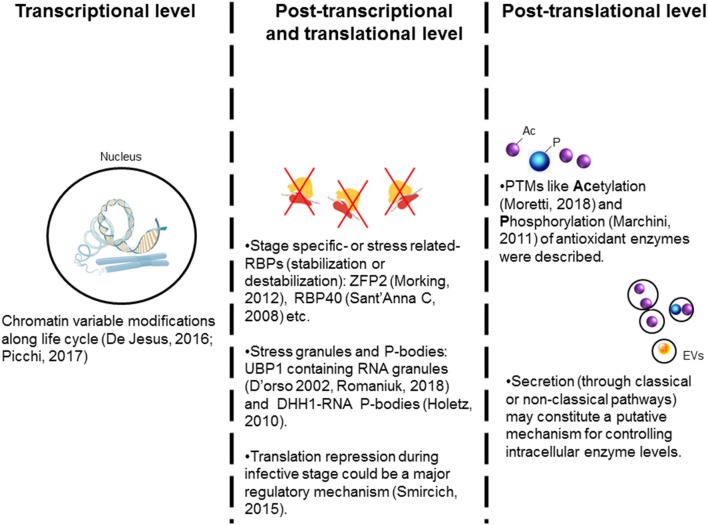Figure 3.
Possible mechanisms controlling the antioxidant enzymes' expression in trypanosomes. The expression of many of the antioxidant enzymes is increased during metacyclogenesis and in infective stage suggesting that stage-specific regulation mechanism(s) are involved. (1) Stage-specific post-translational modifications (PTMs) of histones are suggested to offer transcriptional regulation of antioxidants' expression in different parasite life cycle stages. (2) RNA binding proteins (RBP) are suggested to positively or negatively target the mRNA's stability and offer post-transcriptional regulation. The RNA-granules containing ribosomal machinery are suggested to arrest the translation of mRNAs for antioxidants. Overall, translational repression appears to be a general response during stress and in the infective stages. (3) Post-translational modifications, especially acetylation and phosphorylation, of antioxidants may provide a tight regulation of the enzymatic activity. Further, we propose that secretion of the antioxidants with extracellular vesicles (EV) acts as a mechanism to control intracellular concentration of antioxidants in the parasite.

